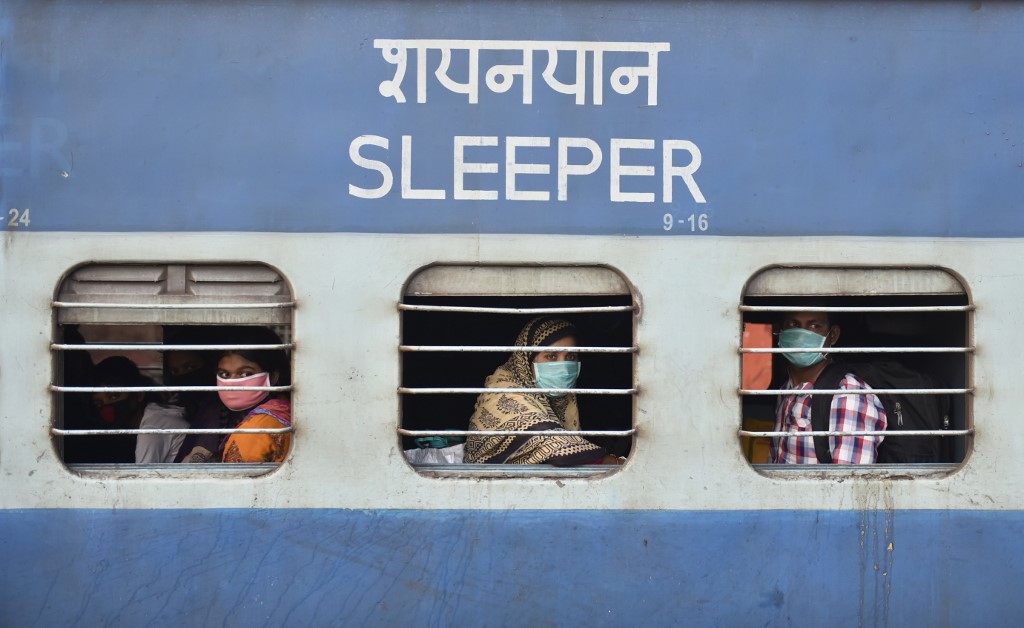India has opened up its vast railway sector to private companies, allowing firms to operate trains on certain routes, in a bid to boost its stuttering, virus-hit economy.
The 167-year-old train network carries 20 million passengers daily but is plagued by deadly accidents, rickety infrastructure, lack of modern amenities and poor investment.
In an announcement last week, the railway ministry said it would now permit businesses to run trains along 109 routes, inviting bids from firms weeks after New Delhi opened up coal mining to the private sector.
“This is the first initiative of private investment for running passenger trains over Indian Railways network,” the ministry said in a statement.
“The objective of this initiative is to introduce modern technology rolling stock with reduced maintenance, reduced transit time, boost job creation, provide enhanced safety, provide world class travel experience to passengers,” it added.
The project will require an investment of $4 billion and private players will have to pay the government fixed haul charges and a percentage of profits determined during the bidding process.
Prime Minister Narendra Modi has sought to privatise a range of industries that have been under state control for decades, sparking criticism from the opposition Congress party.
“Now the government is in a desperate mood to sell a great chunk of one of our largest national asset #IndianRailways,” Congress politician Adhir Ranjan Chowdhury tweeted.
“Privatisation cannot be construed as a panacea of railways malady”, he added.
Tottering network
The tottering network is notorious for accidents, with 15,000 passengers killed every year according to a 2012 government report that described the deaths as a “massacre”.
Asia’s third-largest economy has been clobbered by the pandemic and a months-long lockdown, growing at its slowest pace in at least two decades last quarter.
The shutdown, which put millions out of work overnight, is widely expected to plunge the country into recession.
Fears for the economy prompted the government to allow many businesses to resume operations starting last month despite an ongoing increase in infections, which have now crossed 600,000.
Even before Modi announced the lockdown in late March, the economy was struggling to gain traction with sluggish growth, record unemployment and a flurry of bad loans making banks reluctant to lend.
AFP
























